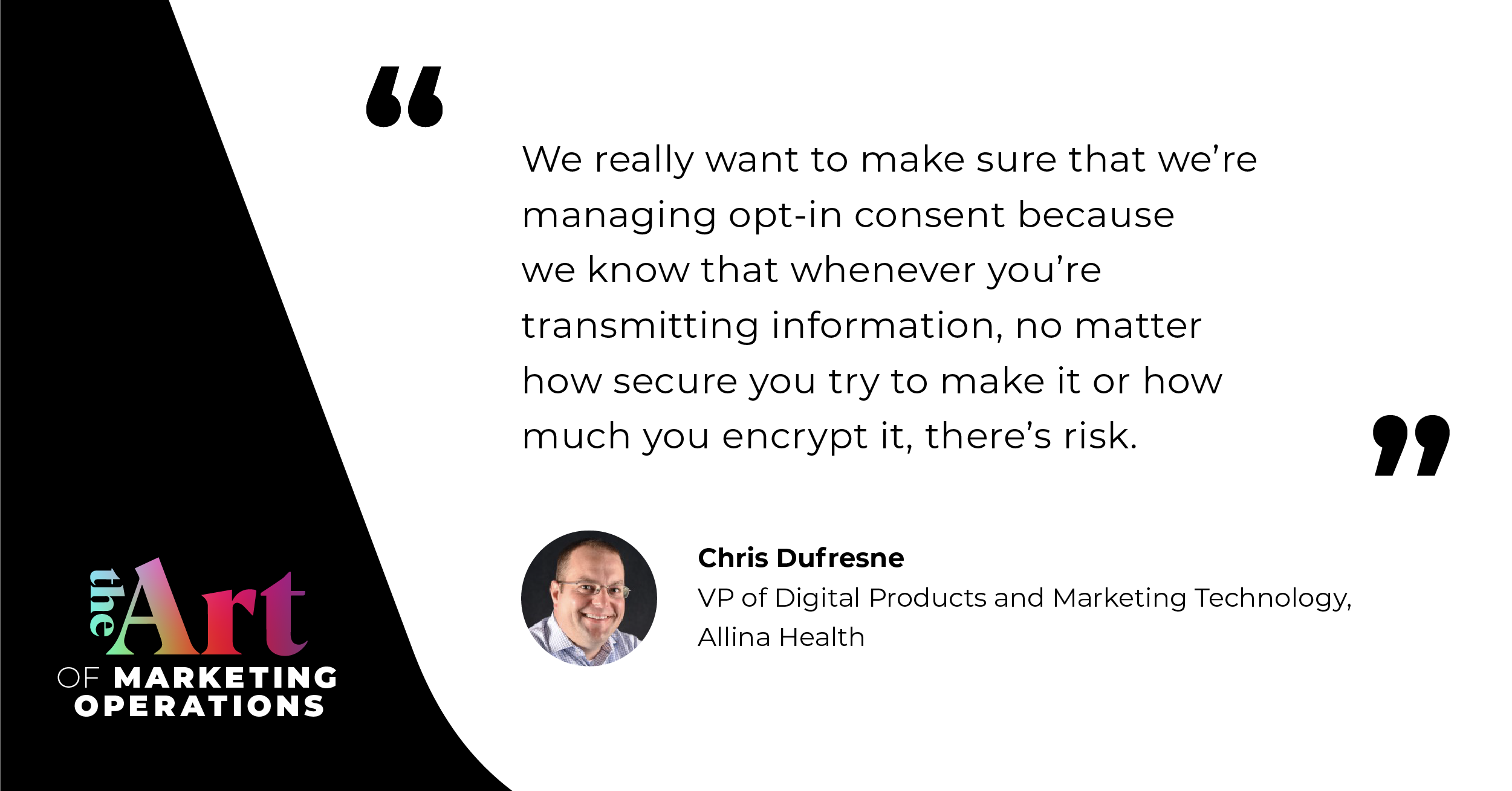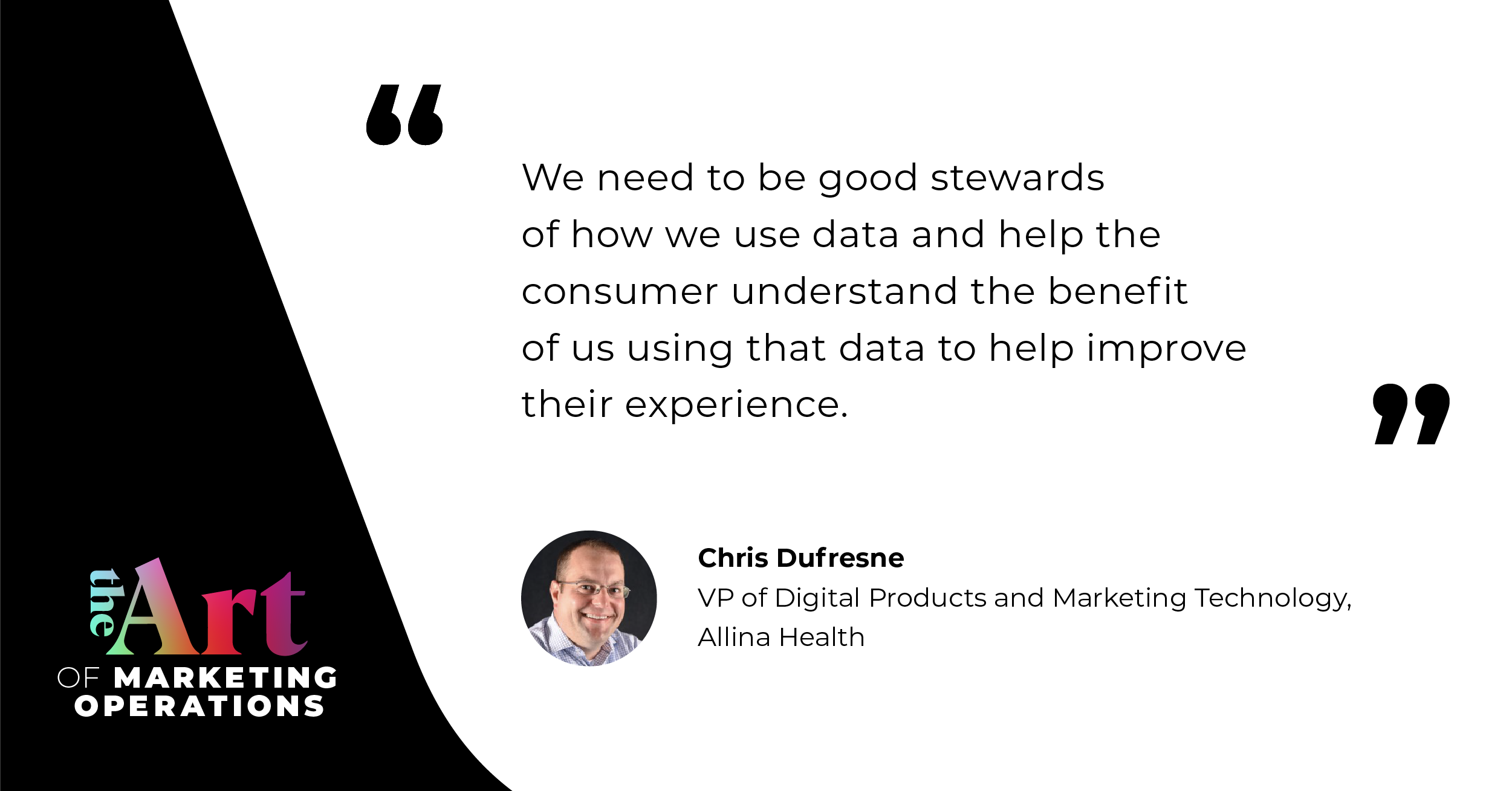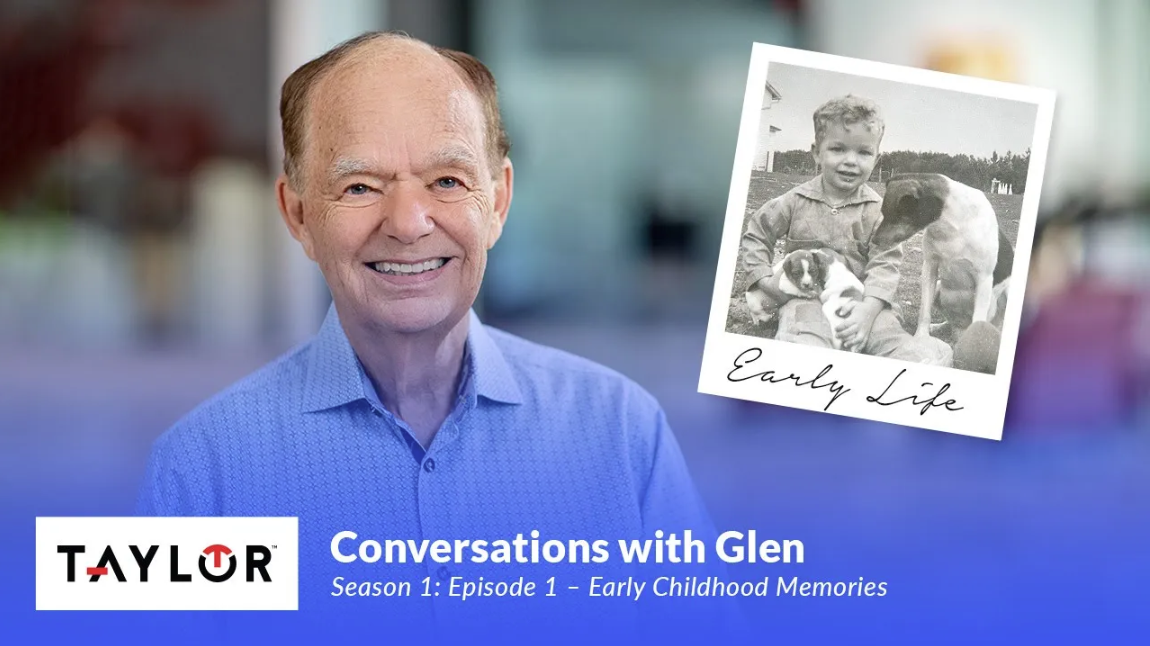When it comes to balancing between utilizing and protecting personal data, there is probably no area more fraught for marketing professionals than the healthcare industry. With changes to regulations protecting personal data, digital experiences can struggle to keep pace with in-person patient care.
Chris Dufresne, VP of Digital Products and Marketing Technology at Allina Health, is working to streamline the modern digital experience for everyone in the healthcare industry. He sees value in leveraging what retail and other industries have fine tuned already to make our digital healthcare more efficient and in-tune with patient needs.
Join us as Glenn and Chris discuss:
- How to be good stewards of healthcare data and driving robust marketing agendas that are in compliance with new government regulations
- Personalizing the healthcare experience to protect data, but still use digital and marketing technology to benefit the patient experience
- Apart from protecting personal data, understanding the need to be less… creepy when it comes to targeted marketing regarding health matters.
Keeping healthcare information safe
We all know privacy and security are important in the financial space. Chris suggests that it’s even more important in the healthcare space — as most of the information is deeply personal to the individuals involved.
And while there’s many steps that can be taken to ensure that information is kept safe, it’s important to not forget that theft is always on the table.
“We really want to make sure that we're managing opt-in consent because we know that whenever you're transmitting information, no matter how secure you try to make it or how much you encrypt it, there's risk.” — Chris Dufresne

Chris shares that this is why some of your emails from your healthcare provider seem a little cryptic:
“We want to be careful that we're not sharing sensitive information within an email and that there's at least some form of authentication or verification of your identity before any detailed information is provided. So that security is really key; we work hard as a healthcare organization to protect the data.”
So, then, why take the risk at all if marketing operations sending tailored emails poses a risk to patients? For Chris, while there will always be some risk involved, it is nominal compared to the potential upside of providing patients with better healthcare experiences.
There’s a way to be safe and provide better solutions for patients. And it starts with the right marketing strategy.
Balancing marketing and professional healthcare communications
From a marketing perspective, you want to maximize the efficiency of your marketing operations. But balancing that with the patient expectation that the healthcare system is respecting their privacy to the highest degree can be a challenge.
Everyone has differing degrees of comfortability with the types of targeted marketing they receive. With Amazon goods, most customers accept that the recommended products are being provided from sources like previous search history.
But now imagine receiving a healthcare recommendation in your email about a highly sensitive and private health issue you’ve only discussed with your doctor. This would be highly concerning for the patient.
That uncomfortability is exactly what Chris works to avoid.
“We need to be good stewards of how we use data and help the consumer understand the benefit of us using that data to help improve their experience. ” — Chris Dufresne

Chris sheds some light on the channels that patient data is collected:
- Google Analytics data
- Qualitative, quantitative research
- User experience research
- A/B testing
With all the data, Chris aims to keep the consumer at the center of the process; something that often is overlooked in preference of keeping the organization center in retail. For healthcare, this could mean keeping the physician center instead of the patient.
He explains, “There's always a certain group within an organization that will say that the consumer needs to be at the center. But the reality sometimes is they're at the center. And in healthcare that can sometimes be the physicians. And it's all well intended. And that's how healthcare has been for many years. But the power that the consumer has, has grown and continues to grow.”
How to avoid creepiness with your marketing
Most people have experienced an eerie ad pop up on their social media, tailored to a product you searched for once in the past. And while it all can be explained with how the data is being used to provide those suggestions, it can still feel strange if you don’t fully understand the process.
Glenn mentions the example of a pregnant woman who changed her shopping behavior — preferring unscented products to scented. Facebook then took that information and concluded that she must be pregnant, forwarding baby-related advertisements to her father, alerting him of the pregnancy before the mother decided to tell anyone.
So, while Chris aims to improve the healthcare marketing experience for patients, he also recognizes the need to straddle the line between helpful and uncomfortable — an effort that, undoubtedly, will improve the healthcare patient experience.








.png)


